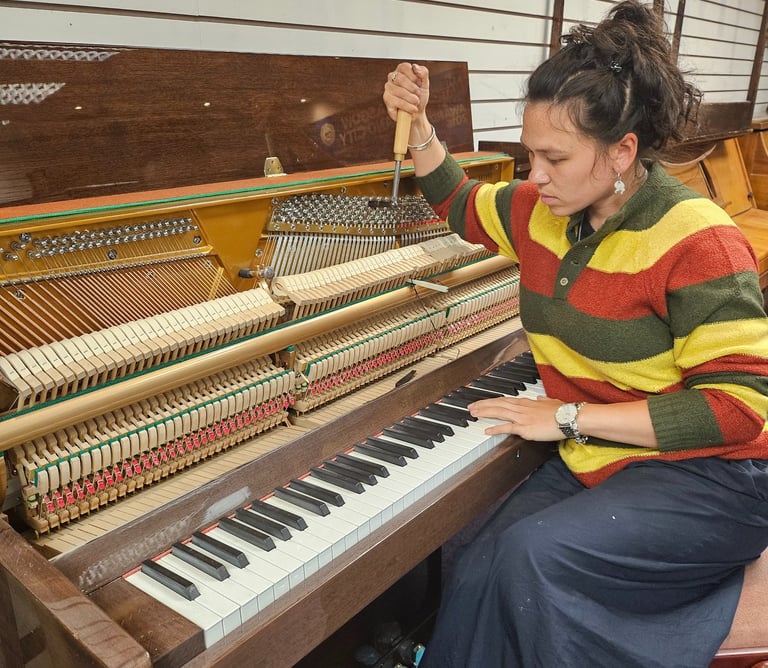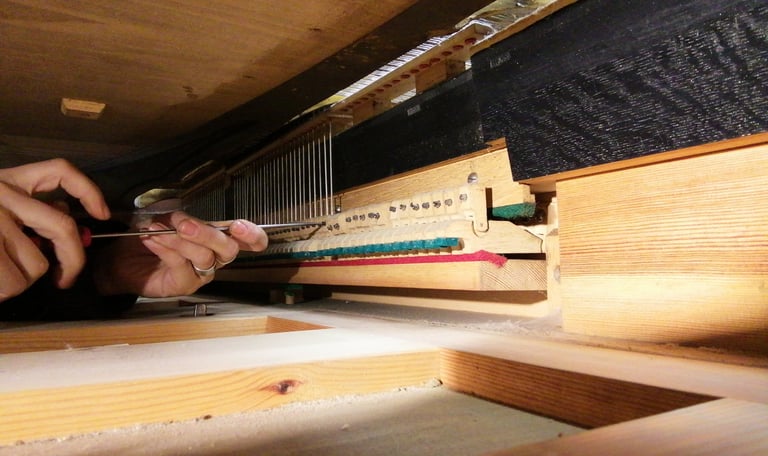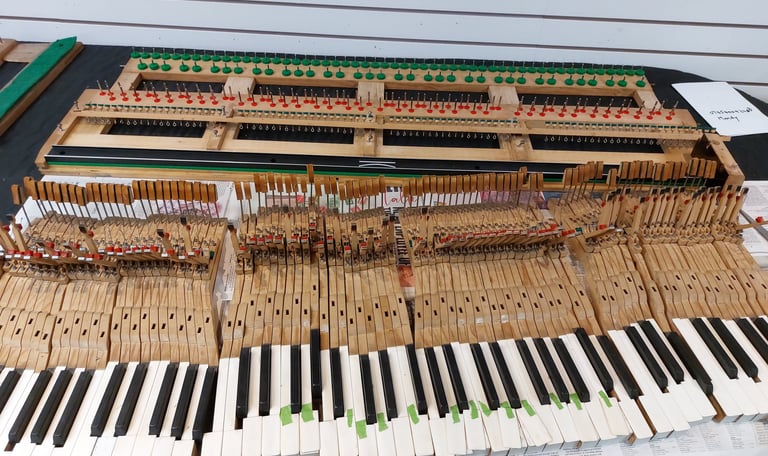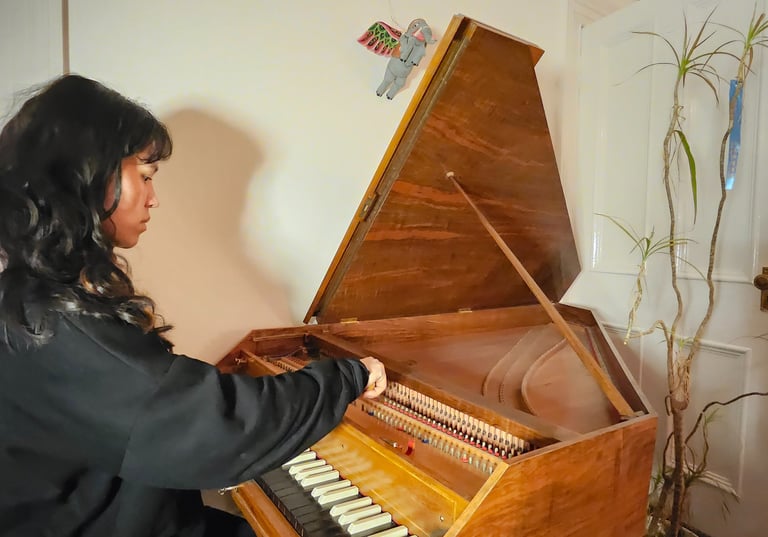Services


Tuning
Regulation
The regulation of a piano refers to the adjustment and maintenance of its mechanical components, ensuring that each note produces a consistent and harmonious sound and feel. This process is crucial for several reasons. Firstly, a well-regulated piano allows for optimal performance, enabling pianists to express themselves fully without being hindered by mechanical flaws in the pianos 3000 moving parts. Secondly, regulation helps maintain the instrument's longevity, as properly adjusted parts are less susceptible to wear and tear. Lastly a well regulated piano improves its tone - the first step in the process of voicing. Without proper regulation, pianos can develop issues such as sticking keys, poor repetition or uneven touch, which can detract from both the playing and listening experience. Ultimately, the regulation of a piano is essential for both professional and recreational players, contributing to the instrument’s overall sound quality and playability, and so it is recommended to have the piano regulated roughly once every few years.
Regular tuning is essential to maintaining the best sound quality of your piano as seasonal changes and fluctuations in climate can affect the tension of the piano’s strings, leading to variations in pitch- especially if the piano has moved home. If your piano has been untouched for an extended period, it might need a pitch raise (more than 4Hz flat) although this is not always feasible, especially for older instruments with stability issues. Consequently, the initial step in the tuning process involves a thorough assessment to determine the best course of action for your cherished piano. It’s important to note that achieving concert pitch might not be possible in every case due to the age and condition of the instrument but in these cases the piano can be tuned to itself. When tuning a piano - especially during a pitch raise there is always a risk of breaking a string, in most cases this repair can be done on site with steel wire (and a few return visits to tune the string until it stays at pitch), however if a bass string breaks this requires a rubbing to be done of the piano to send to a string maker, who will in turn send back a wound copper string to fit the piano


Repair and Restoration
If there’s something not feeling or sounding right with your piano (e.g a clicking or knocking sound, notes not playing or damping etc), it’s important to get it seen to because the complex mechanical nature of the piano means that a small issue like a loose centre pin or a missing felt, can have knock on effects in the piano action creating a larger problem. There are a long list of common repairs on the piano that can be done on the road, however, there are instances when a piano may be beyond a routine repair due to age or severe wear. For example after many years of playing, the hammer felt may become grooved, and action components such as springs and tapes may break, rendering a good standard of playing impossible. In these cases if the instrument is of sufficient quality a comprehensive action overhaul would extend its playing life by many years. Similarly if the strings are losing their resonance, or beginning to break, full re-stringing could be considered as an option.
Other instruments
Being a piano technician offers invaluable transferrable skills applicable to working on other early keyboard instruments such as virginal, clavichord and harpsichord. Despite being more simply constructed they require a complicated tuning system that differs from the equal temperament commonly used in modern pianos – there are many different unequal temperaments and some instruments suit one over others. Furthermore due to the lower tension across their frames (wooden as oppose to cast iron), early keyboard instruments are more susceptible to environmental changes, which results in the need for more frequent tuning. As well as working on early strung keyboard instruments, I am also in the process of restoring a Dulcitone – a rare instrument invented in Glasgow in 1864 by Thomas Machell, which despite its popularity in Glasgow is not found so commonly further afield. This comprehensive education allows me to appreciate the nuances of sound, craft and playability that define various early keyboard instruments, and in learning to adjust for these unique factors ,bridge the gap between historical precision and contemporary performance.




Service Areas
Piano tuning and restoration services across Scotland.
Locations
Glasgow and surrounding areas
Central Belt
Regular visits to Highlands and Islands, please contact for information on dates.






